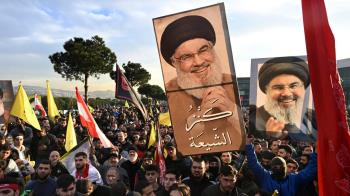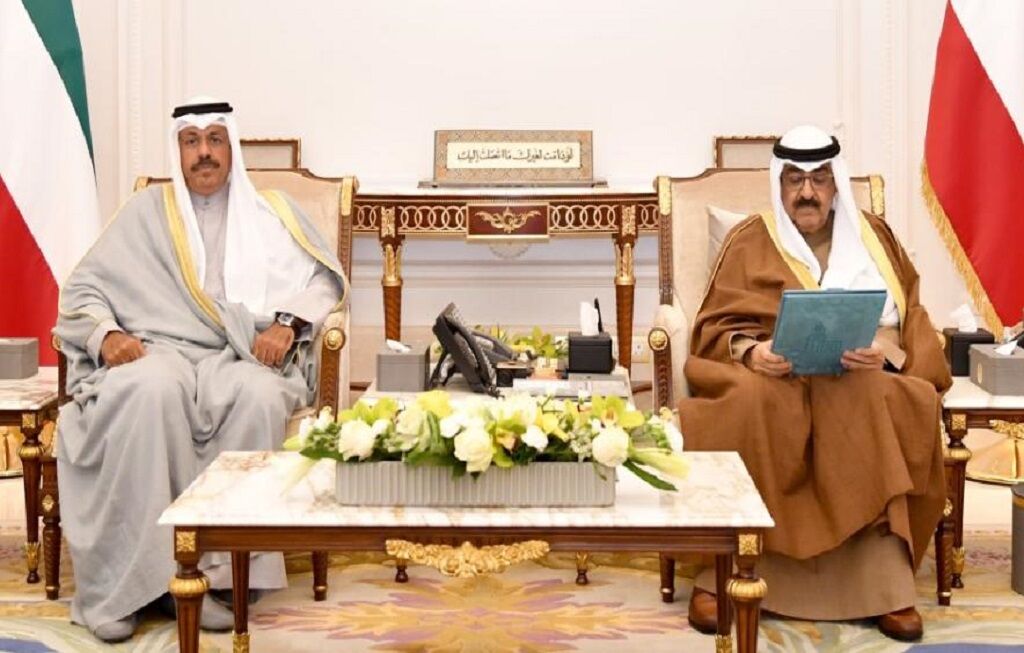Alwaght- While some Persian Gulf Arab countries form such institutions as parliaments and cabinets to portray their rule and legitimacy as popular and vote-granted, due to the tribal structures, these democratic institutions have made no progress so far.
The political structure of Kuwait, a monarchy coated with democracy among other Persian Gulf states, has been suffering from persistent tensions between the parliament and the government.
Three months after the resignation of the previous government, on March 5, Emir Nawaf Al-Ahmad Al-Jaber Al-Sabah ordered the formation of a new government headed by Ahmad Nawaf Al-Ahmad Al-Sabah, the previous prime minister. In the new government, 6 ministers who served in the previous government were changed and new people replaced them. Constitutionally, the new PM has to announce the emir’s decree to the parliament and start working from the date of issuance and publication in the official gazette.
The PM Ahmad bin Nawaf is the oldest son of the emir. In July 2022, he was named PM by a decree from the crown prince, but resigned a few months following differences with the parliament. Before premiership, he served as deputy head of National Guard, governor of Hawalli, and a member of assembly of Al-Arabi football club.
PM not obeying the parliament
Despite the fact that the PM and ministers are obliged to cooperate with the National Assembly to continue their work, the new government has opposed the parliament since the beginning and even expressed its intention not to cooperate with the parliament. The PM’s opposition to the parliament comes while the Kuwaiti Constitutional Court on March 19 ordered the return of the 2020 parliament headed by Marzouq Al-Ghanim and annulment of parliamentary elections held in September 2022. The court ruling stated that the entire election held in September in five constituencies was invalid and the list of the winning representatives was declared invalid. The previous dissolved parliament regains its constitutional authority as of the date of this ruling, as if no dissolution had taken place. The crown prince dissolved the parliament last year to end the political dispute and called for early elections. In the new election, the opposition made its way to the parliament.
What are the PM’s scenarios?
The PM refuses to cooperate with Al-Ghanim-headed parliament. He wants the parliament that was elected in last year’s election, but the Constitutional Court has declared its opposition to it, though his previous government was at odds with the parliament last year and submitted its resignation in January, just as lawmakers were about to challenge ministers over the government’s financial management.
Last week, the speaker of parliament attacked the PM and held him responsible for disrupting the political and parliamentary affairs of the country. This is while the PM and his government skipped the first session of parliament on April 4, causing the speaker to delay the session to after Eid Al-Fitr according to Article 116 of the constitution. The constitution stipulates that parliament meetings should be held with presence of government representatives.
Kuwait’s parliament has wide-ranging powers, including the power to pass and block laws, to question the prime minister and ministers, and to challenge senior government officials with vote of no-confidence. Therefore, unlike other Arab monarchies in which the parliament is ceremonial and everything is in the hands of the ruler, the Kuwaiti parliament is influential in the political structures and important decisions of the country and is not submissive to the personal orders of the ruler and is independent in its legislative sphere.
The course of political developments in Kuwait in the past year shows that the prime minister is trying to be above the law and make the parliament work in the shadow of the government, but the political parties and the people are against these thoughts. Kuwaiti Progressive Movement announced that the formation of the new government is taking place while the political crisis in Kuwait continues, a crisis that they say cannot be resolved unless the authoritarian and undemocratic approach of the government changes, because the sheikhdom mentality has been forsaken.
Ibrahim Dashti, a professor of political science, believes that the current government of Ahmad al-Nawaf does not want to work with the parliament for a variety of reasons, including the parliament’s rejection by the people and decision makers. Next scenario is likely to be oath of the PM and the minister in front of the emir so that the ministries can use their powers, and then the parliament will be dissolved and new election will ensue.
Continuation of instability
In parliamentary systems, the government should respond to the parliament in executive issues, and the Kuwaiti government is no exception despite being appointed by the emir. Therefore, if there is no cooperation between these two institutions, political instability continues.
The new government of Ahmad is the 43rd government in the history of this country. In recent years, the life of governments has been short and in most cases, they do not reach a year and resign before implementing their plans. Kuwait adopted a parliamentary system in 1962, but repeated political crises have paralyzed the country. The current government is the seventh one in the past three years and this shows how unstable the country’s cabinets are. The successive resignations of the governments cause disruption in implementation of the assigned tasks of the government and the laws passed by the parliament, and in the meantime, the people pay the price of clashes of their political leaders.
Despite having one of the world’s biggest oil reserves and strong foreign trade and financial balance, Kuwait is seeing investment and reforms delayed because of the disputes between the government and the parliament. Actually, the hopes for reforms in a wealthy country that tries to diversify the economy like Saudi Arabia, Qatar, and the UAE are gone now. Social services such as health care and education are in decline due to persistent rifts between lawmakers and cabinets appointed by the ruling family. Given the fact that the government is an extract of the ruling minority and does not take its legitimacy from the people, it is not inclined to respond to lawmakers as representatives of the nation and this perpetuates the vicious circle of cabinet resignations.
Despite existence of symbols of democracy like the parliament and cabinet, instability continues in Kuwait, showing that tribal and primitive structures still rule the Arab countries and prevent genuine application of democracy.



























